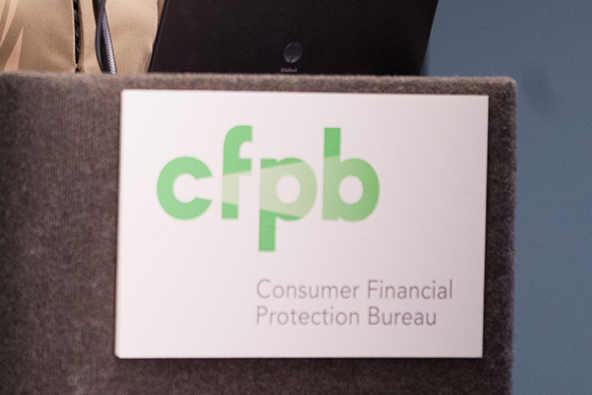Square, Customer Service and Angry Merchants Revisited

The Los Angeles Times’ Jessica Guynn is the latest in a long string of journalists and bloggers to take on the thorny issue of the quality of the customer support provided by Square — Jack Dorsey’s innovative, fast-growing, extremely well-funded and lavishly publicized mobile payments company. And she won’t be the last. A quick check tells me that it has now been two years since I weighed in on the matter and I thought it was time to revisit the subject.
Guynn’s very good piece tells a story, which people who follow Square have heard many dozens of times. The company, the author reminds us, offers no phone support to its merchants — when having an issue with the service, a merchant’s sole option for contacting the processor is email. Naturally, some of Square’s merchants consider this to be a hugely unsatisfactory arrangement and are easily finding outlets to vent their frustration, often quite vociferously. And when you have millions of clients, as Square does, even a small fraction of them can represent a very large number in absolute terms.
But what is interesting in Square’s ongoing customer-support fracas is not that the company has thousands of unhappy customers, some of them very unhappy, going to various online fora to share their negative experiences. For one thing, every company, which has done business long enough, has created its share of dissatisfied customers — that is unavoidable (and no, the customer is not always right). Moreover, it doesn’t seem as though Square’s share of unhappy clients is an especially large one.
No, what is interesting here is the nature of the problem: Square doesn’t offer phone-based customer support. Back when I first looked at the issue, I thought that, for a provider of a financial service, such an approach to customer support was insupportable and I was certain that the processor would, in the not-too-distant-future, be forced to make a phone number available to its merchants. Well, I was wrong with my prediction, but I have also begun to reconsider my analysis. Let’s take a fresh look at the issue.
Not on Speaking Terms
Let’s begin with the latest on the customer dissatisfaction front. Guynn tells a suitably entertaining story of a Square merchant who grew so frustrated with her processor’s email-only customer support policy that she drove two hours to the company’s office in San Francisco to voice her displeasure and find a resolution. In the event, the merchant achieved neither objective, but was instead rewarded for her pains with a threat to be escorted out by the police and with a termination of her Square account.
Guynn also reminds us of Phillip Parker’s Square review on CardPaymentOptions.com, which provided the inspiration for my original post on the processor’s phone-support problem. By now, Parker’s write-up had attracted more than 1,100 comments, mostly (though not exclusively) from irate Square merchants. Here is a taste of what you will find there:
Square is a joke. Customer service is non existent. The combination of paying them a fee PLUS a 30 day money hold is a ripoff. Their advertising never mentions the money holds or arcane operating policies…
And this:
Recently and without notice, Square froze my account and blocked all deposits for approximately three weeks, holding a significant amount of money which I required access to during a period of expansion in my business.
I attempted to resolve this by contacting Square customer services, but found that only email was available. When I attempted to contact Square customer service by phone, I was re-routed back to the only option Square provides, which is email.
And this:
Square is a complete disaster and a rip-off. You would think that a guy who has a net worth of over a BILLION dollars would take the time to ensure that his customers can call a real human for assistance with a problem. Apparently Dorsey is too busy reinventing his bank account (and stealing money from me) to take the time to ensure that the people who make this jerk rich are happy.
I had one experience with Square and it has been totally unpleasant. Not only does no one respond to my email concerns about my issue, they also apparently do not know how to use a telephone as I have sent in my phone number but no one will respond to me.
And on it goes — you get the picture. Now, we should be careful not make too much out of these comments, many as they may be. Customers who are not getting their way tend to go over-the-top in their negative reviews, whether they are in the right or not, just to vent their frustration. And it is by no means certain that, by adding phone support, Square would be able to check that torrent of negativity. If you need proof, just ask PayPal. Still, should the processor do it?
Happiness vs. Profitability
As Guynn notes, at present, Square offers two ways for merchants to contact the company: email and Twitter. Here is how the processor has explained its customer support policy in an email to the LA Times reporter:
Our goal is fast, efficient customer service that gets people immediate answers to their questions whenever and however possible. In addition to email and real-time Twitter support, we have a robust online help center that customers can visit any time. We also provide phone support for some issues and continue to test new ways to help our customers as quickly and efficiently as we can.
Of course, that is just PR boilerplate, but it also makes it clear that Square has no intentions of offering real phone support to its merchant anytime soon. Now, two years ago I argued that this was bad policy, which was sure to generate so much bad publicity that the company would be forced to change it. Well, I was right about the bad publicity, but I was certainly wrong in predicting a change of policy. And the more I think of it, the more convinced I become that offering phone support would not make much difference for the processor. That is not how one of the experts cited in Guynn’s piece sees it:
Google and Facebook do not consider us, the public, their customers. Their customers are the advertisers, and their product is free. With Square, I think of the merchants as being the customers. There need to be escape hatches for when one needs human intervention.
That is a reasonable position to take, from a merchant’s point of view. However, that is not how things look from Square’s angle. Part of the reason has to do with cost. Phone support is expensive and you feel that especially keenly when most of your customers barely make you any money (in fact, my educated guess is that Square is losing money on most of its merchants). Another one of Guynn’s experts puts it well:
When you deal with very small merchants, and particularly with the pricing paradigm Square has — pay as you go, no monthly fees — it’s not a very profitable segment. You can’t afford a lot of additional costs.
But there is more to it than that. Jack Dorsey has closely studied the history of PayPal, Square’s most formidable rival, and even had a former PayPal executive — Keith Rabois — as his company’s COO, until a sex scandal forced Rabois to resign. He’s surely noticed that PayPal’s well-staffed customer support call centers, while hugely expensive to maintain, have done little to plug the torrent of scurrilous customer reviews. Reflecting on his observations, Dorsey probably decided that, as he would get continually hammered by unsatisfied merchants either way, it would not make much sense to take the far more expensive route toward providing customer support, even if he could afford it. And you know what, he’s probably done the right thing for his company.
The Takeaway
Thinking about all this, I can’t help but being reminded of a famous exchange, which railroad magnate William Henry Vanderbilt once reportedly had with a journalist named Clarence Dresser. In a conversation about trains, Dresser asked:
Mr. Vanderbilt, are you working for the public or for your stockholders?
Vanderbilt’s swift reply:
The public be damned! I am working for my stockholders! If the public want the train, why don’t they support it?
Well, I think that this is precisely how Dorsey sees his role and that of Square. And why should he adjust his view? His investors seem very happy with Square’s evolution and, by all accounts, merchants are still flocking to the processor in record numbers.
Image credit: a screenshot of Squre’s homepage.


